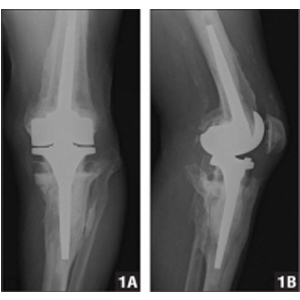Nailing and Plating
Intramedullary (IM) nailing and plating are the two major options for the treatment of fractures. Indications of IM nailing are fractures in older adults with thin skin or compromised soft tissue, patients with high risk of a non-healing wound, and splits with distal bone mass allowing insertion of two screws. Plating is indicated for fractures with the risk of malalignment, fractures with simple articular involvement, and fractures in which IM nailing is not amenable. IM nailing frequently results in malalignment, malunion, and knee pain.
Rheumatoid Arthritis
Rheumatoid arthritis (autoimmune disorder) is a chronic inflammatory disorder that can affect more than just your joints. In some people, the condition also can damage a wide variety of body systems, including the skin, eyes, lungs, heart and blood vessels.
Unlike the wear-and-tear damage of osteoarthritis, rheumatoid arthritis affects the lining of your joints, causing a painful swelling that can eventually result in bone erosion and joint deformity.
Signs and symptoms of rheumatoid arthritis may include:
- Tender, warm, swollen joints
- Joint stiffness that is usually worse in the mornings and after inactivity
- Fatigue, fever and weight loss Early rheumatoid arthritis tends to affect your smaller joints first — particularly the joints that attach your fingers to your hands and your toes to your feet.
- Skin
- Eyes
- Lungs
- Heart
- Kidneys
- Salivary glands
- Nerve tissue
- Bone marrow
- Blood vessels
As the disease progresses, symptoms often spread to the wrists, knees, ankles, elbows, hips and shoulders. In most cases, symptoms occur in the same joints on both sides of your body.
About 40 percent of the people who have rheumatoid arthritis also experience signs and symptoms that don't involve the joints. Rheumatoid arthritis can affect many non-joint structures, including:
ORTHOPEDIC - EMERGENCIES FRACTURES
The Emergencies Fractures Service at Narmada Hospitals provides emergency orthopedic care and post-traumatic reconstructive surgery services to patients with traumatic injuries resulting from motor vehicle collisions, industrial accidents, falls and any other mechanism of injury.
- Open fractures
- Compartment Syndrome
- Osteomyelitis
- Multiple Long Bone Fractures and Unstable Pelvic Fracture
- Septic Joint
- Cauda Equina Syndrome
- Hip Dislocation
- The Acute Joint
- Joint fluid analysis



